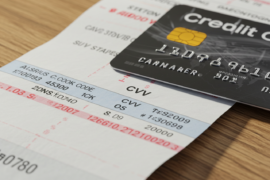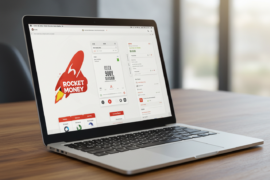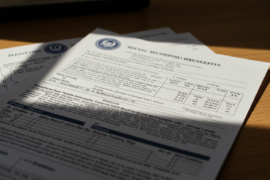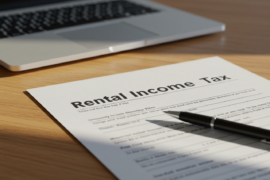This article may contain references to products or services from one or more of our advertisers or partners. We may receive compensation when you click on links to those products or services. Nonetheless, our opinions are our own.
- Managing Your Bills with Ease: Effective Strategies for Financial Organization
- Understanding Your Bill Categories and Deadlines
- Creating an Effective Bill Organization System
- Leveraging Technology for Bill Management
- Setting Payment Reminders
- Regularly Reviewing Bills for Potential Savings
- Incorporating Bills into Your Overall Budget
- Frequently Asked Questions
- Recommended Reads
Managing Your Bills with Ease: Effective Strategies for Financial Organization
Managing bills can often feel overwhelming, but it doesn’t have to be. If you’ve ever been caught off guard by missed payments or late fees, you understand how stressful it can be. Fortunately, staying organized is the key to preventing these issues. With simple strategies, you can streamline your finances, reduce stress, and always pay your bills on time.
Understanding Your Bill Categories and Deadlines
To start, it’s important to categorize your bills. They generally fall into three types: fixed, variable, and periodic. Fixed bills—like rent or mortgage payments—remain the same each month, offering predictability in your budget. Variable bills, such as utility costs, change based on usage. Periodic expenses, like annual insurance premiums, are less frequent but require attention.
Once you identify your bill categories, the next step is to track payment deadlines. A clear calendar or schedule can make all the difference.
Creating an Effective Bill Organization System
Establishing an organizational system for your bills will help you avoid chaos. Whether you use a physical filing system, a digital tool, or a combination of both, having a dedicated space for financial documents ensures you can access them when needed.
Consider sorting your bills into categories like utilities, credit cards, and subscriptions. This system makes it easier to track payments and avoid losing important documents. Consistency is key to staying organized.
Leveraging Technology for Bill Management
Using technology can drastically simplify your bill management process. Automating payments for recurring bills such as utilities, insurance, and subscriptions ensures you never miss a due date. Most banks and service providers allow you to set up automated payments directly through their apps or websites, saving time and eliminating the risk of late payments.
Financial apps also offer valuable tools for bill tracking. These apps send reminders, categorize your expenses, and help you visualize your spending habits. Some popular options include:
- Mint – Comprehensive budgeting and bill-tracking features.
- YNAB (You Need A Budget) – Designed to help you prioritize your bills.
- Truebill – Focuses on managing subscriptions and recurring charges.
Integrating these tools into your routine ensures that bill payments are timely and stress-free.
Setting Payment Reminders
Setting up reminders is a simple but highly effective way to stay on top of your bills. Calendar apps are beneficial for setting alerts well in advance. A good practice is to set reminders for one week and one day before each due date, giving you plenty of time to prepare.
Regularly Reviewing Bills for Potential Savings
Reviewing your bills regularly is essential for identifying opportunities to save. This helps you spot discrepancies and find areas where you can cut back.
You can uncover savings opportunities that may otherwise go unnoticed by taking a few minutes each month to assess your bills. For instance, if your electricity bill has remained constant even as your usage has decreased, it might be time to shop around for a better rate.
Incorporating Bills into Your Overall Budget
A well-planned budget is the cornerstone of sound financial management. Including your bills in your budget ensures you account for essential expenses, leaving room for other financial priorities. Begin by categorizing your expenses into essentials and non-essentials. Essentials might include rent, utilities, and insurance, while non-essentials could include entertainment, dining out, and subscriptions.
Frequently Asked Questions
Why is bill organization important?
Staying organized prevents late payments and associated penalties. A clear system also helps you track your expenses and stick to your budget, contributing to better overall financial health.
What’s the best way to organize bills?
The key is finding a system that suits your needs. You can use either physical or digital methods, or combine both. Consistency and categorization are essential to maintaining an efficient bill-tracking system.
How does technology simplify bill management?
Technology helps automate payments, send reminders, and track spending. Digital tools like budgeting apps and bill management platforms provide a simple way to stay on top of your payments and ensure timely action.
How can a calendar help with bill management?
A calendar can be a powerful tool for tracking payment due dates. Setting reminders one week and one day before each due date ensures you don’t forget payments, keeping your finances organized.
How often should I review my bills?
Reviewing your bills monthly helps catch discrepancies and highlights areas for savings. It’s an essential part of managing your finances.
What should I do with paid bills?
Once paid, store receipts or payment confirmations in an organized archive, either digitally or physically. Keeping a record ensures you can easily reference past payments when necessary.
Can I reduce the number of bills I receive?
Opting for paperless billing reduces the amount of physical mail. Additionally, consolidating services like internet and phone plans can streamline your payments.

Reviewed and edited by Albert Fang.
See a typo or want to suggest an edit/revision to the content? Use the comment form below for feedback.
At FangWallet, we value editorial integrity and open collaboration in curating quality content for readers to enjoy. Much appreciated for the assist.
Did you like our article and find it insightful? We encourage sharing the article link with family and friends to benefit as well - better yet, sharing on social media. Thank you for the support! 🍉
Article Title: 8 Ways to Organize Your Bills
https://fangwallet.com/2025/04/16/financial-organization/The FangWallet Promise
FangWallet is an editorially independent resource - founded on breaking down challenging financial concepts for anyone to understand since 2014. While we adhere to editorial integrity, note that this post may contain references to products from our partners.
The FangWallet promise is always to have your best interest in mind and be transparent and honest about the financial picture.
Become an Insider
Editorial Disclaimer: The editorial content on this page is not provided by any of the companies mentioned. The opinions expressed here are the author's alone.
The content of this website is for informational purposes only and does not represent investment advice, or an offer or solicitation to buy or sell any security, investment, or product. Investors are encouraged to do their own due diligence, and, if necessary, consult professional advising before making any investment decisions. Investing involves a high degree of risk, and financial losses may occur including the potential loss of principal.
Source Citation References:
+ Inspo
Investopedia. (n.d.). Investopedia. https://www.investopedia.com/
Wikipedia, the free encyclopedia. (n.d.). https://www.wikipedia.org/
Fang, A. (n.d.). FangWallet — Personal Finance Blog on Passive Income Ideas. FangWallet. https://fangwallet.com/
Google Scholar. (n.d.). Google Scholar. https://scholar.google.com/
There are no additional citations or references to note for this article at this time.












































